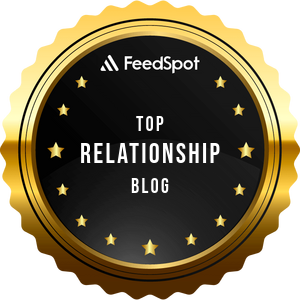
Are you hurting your marriage? So often, when couples make that first call to me, they feel defeated and describe repeating a reactive dance in their relationship. This negative pattern leaves couples stuck, hopeless, and unhappy.
Does this relationship dance sound familiar? Maybe you have a pattern with your partner that leaves you despairing, such as fighting, apologizing, and vowing never to do it again. Yet, you both inevitably repeat the same pattern until you're exhausted and miserable.
Learning how to stop the reactive dance between you and your partner is the first action you must take. So, how do couples learn how to stop a reactive dance? It starts with a pause to reflect and then a mindful and kindly worded request. The facts are that an apology is no longer the cure to a fight in your relationship.
Apologies become background noise when the same behavior in a relationship occurs repeatedly. An apology becomes hollow and empty; it may feel as if you don't matter, they don't matter, and the relationship doesn't matter. So, begin to be mindful of preventing any fights. After all, "An ounce of prevention is worth a pound of cure."
While prevention is the key to undoing a repeated and very damaging dance in your relationship, there's another critical factor and one of the centuries-old pieces of advice: "Do No Harm."
First, Do No Harm is the Hippocratic Oath and essential for love and relationships. So, I googled love relationships and the Hippocratic Oath, and a whole world came up! The most important question came:
- "Why do you harm the person you want to feel the closest to in your life?"
So, let's look deeper at the why and how relationships are harmed for understanding and positive change.
How Do You Harm Your Loved Ones?

Here are a few ways you may be harming your partner while stuck in a negative relationship pattern:
- Placing blame
- Acting reactivity
- You’re no longer expressing loving behaviors
- You’re engaging in the same arguments over and over
- You find yourself spending more time away from home
- You spend less time connecting with your partner when you’re home
- You’ve emotionally shut down toward your partner
- You’ve begun to withhold intimacy and sex
- You yell or scream at your partner
These are just a few ways you harm your partner, that special person you've professed your undying love.
Understanding brain science can help explain why you harm your partner. We now know that acting out with the items listed above comes from your reptile brain, which is our fight-or-flight brain, and it's fully taken over in those crucial moments.
When your reptile brain takes over, and you're acting destructively, you may be saying the following to hurt your partner:
- "I don't care about you."
- "It's your fault."
- “Leave me alone."
However, what's going on in your brain is often the opposite of the words coming out of your mouth! Underneath it all, what you think and feel don't match. You may be feeling the opposite and may want to say something like this:
- "Can't you see that I'm hurting?"
- "I want you to care that I'm hurting!"
- "I'm desperate for you to listen to me."
- "I want to feel loved by you."
The reptile brain has a funny way of sharing what is happening and the words that come out! What's worse is that many people feel powerless over the reptile part of their brain. I say this with lots of compassion - I understand, truly. Everyone may struggle in moments and become "grabbed" by their emotions - all in less than a blink of an eye. These feelings that overtake you are often visceral and overpowering.
While working with couples in workshops and sessions, I've had some funny moments after sharing the importance of committing to a zero-negativity rule in your relationship where the end of criticism provides a deeply loving and healthy relationship.
Some couples felt having zero negativity in their relationship sounded impossible and shared the following:
- "You mean no negativity ever?!" Or
- "No negativity in my relationship is not humanly possible!"
While no negativity might be more difficult for those who grew up with more wounding, it's not impossible, even for those who didn't grow up in a mature and loving household where parents taught healthy self-regulation.
The reality is that by practicing a zero-negativity relationship, your relationship will begin to flourish again. The good news is that you can decide your own path as you grow and evolve. You have the free will to become a master of your response and reaction to people around you who may trigger you, especially those closest to your partner.
Even in the face of unconscious and less healthy behavior from your partner, you still have the power to choose a healthy path. Your choice in that moment is the deciding factor between a healthy or destructive road. The stimulus and your response can liberate you from your reptile brain reactions.
Let's look at what it means to be a healthy and loving adult in a relationship with immeasurable rewards. Enter the land of the relationship milk and honey by working on two things:
- Self-regulation, and
- Co-regulation.
What is Self-Regulation?

Self-regulation is the ability to learn to control our behavior and think before we act. It means we can tolerate disappointment, allow our partner to have a moment, stay kind and connected, and manage our impulses. (We're not talking about abusive relationships.)
Self-regulation means acting out of your core values, making you feel much better about yourself. It also means being aware of your feelings and acting from a discerning, regulated part of yourself (essential for healthy and thriving relationships.)
There is so much help for self-regulation: mindfulness practice, self-soothing, breath work, cognitive practices, self-compassion, and meditation. I'm thrilled to be an Imago Relationship therapist because the foundations are built from co-regulation.
What is Co-Regulation in Relationships?

The couple’s dialogue is an extraordinary way to stay connected and build a bridge instead of blowing it up. I know the word magic gets overused, but honestly, so many of my couples (and in my marriage) experience co-regulation by staying within its boundaries, it will carry you to safety.
And the idea that, as a couple, we are a team helping each other stay regulated comes from the place of:
- How can I improve this interaction between us right now?
- What are the ways I could bring peace between us at this moment?
A healthy and thriving marriage or relationship starts with preventing negative patterns that hurt you and your partner. It's also learning how to be more mindful about the concept of harm to you, your partner, and your relationship. With that, frequent check-ins about self-regulation and, for the relationship, co-regulation.
What do you think about starting today and focusing more on your self-regulation? Then, you and your partner can focus on the positives of a happy, healthy, and thriving relationship with co-regulation.
Now that you know what happens in your brain when you feel triggered, you can pause to be more mindful and choose a path that keeps you self-regulated so that the relationship can work in a co-regulation manner. Can you and your partner commit to what Hippocrates shared with us 2400 years ago? Can you commit to a healthy and thriving relationship and Do No Harm?
If you and your partner are struggling in marriage, we're here to help. Check out our virtual and in-person Imago Relationships Workshops and Imago Relationships Therapy.
Discover more about Imago with our Imago Professional Membership, Imago Professional Facilitators, Imago Professional Training, and Imago Insights Education.
%20/illustrations/Evie_Shafner_LMFT%20-%20Imago%20Relationships%20North%20America.jpeg?width=129&height=178&name=Evie_Shafner_LMFT%20-%20Imago%20Relationships%20North%20America.jpeg)
This blog post was written by Evie Shafner, LMFT.
With a degree in clinical psychology in hand, Evie started private practice in 1979, as a licensed MFT. She was one of the founders of the Los Angeles Women’s Therapy Center, where she worked for over 20 years.
Evie began training in Imago Relationship Therapy in the ’90s, getting certified in 1994. Evie then went on to become an advanced clinician in Imago, a workshop presenter and has served on the Board of Imago Relational International for the last 6 years.
Check out her website too!



